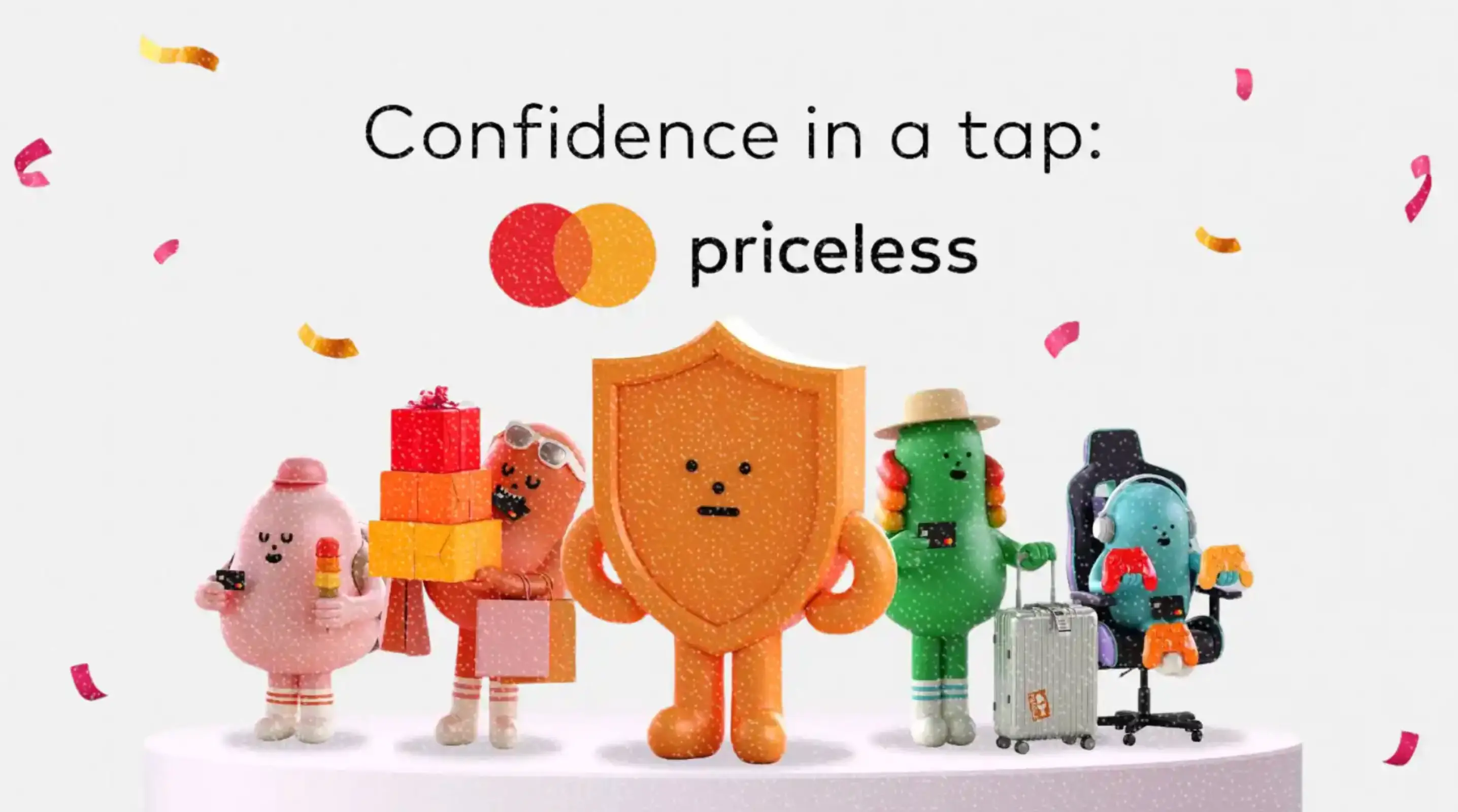Can Swearing Ever Be Good For Your Marketing Strategy?
Updated on
Published on
- In daily conversations, 0.5% to 0.7% of all words are swear words, which is significant considering "we" and "our" occur at a 1% rate[1].
- Online, swearing is more prevalent: 7.7% of Twitter posts and 8.9% of Yelp reviews contain at least one swear word[1].
- The effectiveness of swearing in marketing is substantial if the ideal target audience is captured[1].
- Swear words in marketing can have mixed effects: increasing attention and recall in advertising, but potentially decreasing perceptions of objectivity in online reviews[1].
Any reputable marketing professional will tell you that your business needs a unique voice to stand out in a crowded market. But how about the "we're a big family" brand voice that's more personalized? As an example, if you and your customers were at a Super Bowl party and someone spilled their Coke, would it be acceptable to shout "sht" or "fck"? On occasion, yes. Even though swearing is more prevalent in today's media (such as movies, TV, and social media), its use in marketing continues to spark debate. Advertisers still question whether swearing is good for their business, despite the pervasiveness of graphic language in everyday speech. This article examines a number of aspects of using profanity in marketing and how it affects corporations.
Swearing has transcended its historical taboos and permeated mainstream culture. From Hollywood blockbusters to viral social media posts, explicit language has become a staple of communication. The evolution of societal norms has contributed to a more lenient attitude toward swearing, challenging traditional views on what is considered offensive or inappropriate. Examining the landscape of swearing reveals its ubiquity in films, TV shows, and social media platforms. From gritty dramas to comedic sketches, explicit language has become a tool for expression and relatability. Social media, in particular, has witnessed an explosion of uncensored language, with influencers and users alike adopting a more authentic and unfiltered communication style to relate to viewers who are tired of seeing the same polished aesthetic.
While swearing is prevalent in many aspects of daily life, including seeing swear words in book titles, marketing seems to be a realm where caution is exercised. The paradox lies in the potential impact of explicit language on a brand's image, audience reception, and adherence to marketing regulations. Google itself doesn't penalize for explicit language; however, the prevalence of "safe search" among users can lead to decreased search visibility if your content contains too many swear words. This means potential hits to your website, impacting one of Google's crucial ranking factors. Striking a balance between creative expression, brand authenticity, and SEO best practices is essential for marketers. Exploring alternative strategies that convey the intended message without explicit language can help maintain both brand identity and search rankings, ensuring that your content stands out effectively in the digital landscape.
One of the primary factors that marketers should consider when contemplating the use of swear words is their target audience. Understanding the demographics and preferences of the intended consumers is crucial. Certain products or services may cater to a more mature audience that is more accepting of strong language, while others may require a more restrained approach to avoid alienation. The context in which swear words are used plays a pivotal role in determining their appropriateness. A case in point is the GirlvsCancer charity ad, which aimed to raise awareness about women's experiences with cancer. Despite the positive intention, the Advertising Standards Authority (ASA) ruled against it, citing the potential for serious and widespread offences due to the use of the word 'fuck.' This emphasizes the importance of aligning explicit language with the underlying message and purpose of the campaign.

Adherence to advertising regulations is paramount when considering the use of swear words. Different regions have varying guidelines, and marketers must be cognizant of these regulations. In the UK, for instance, ASA guidelines prohibit marketing communications that are likely to cause serious or widespread offence. Advertisers need to navigate these regulations to ensure their campaigns remain compliant.
While some argue that swearing in marketing can be a powerful tool to capture attention and increase memorability, it's essential to recognize that not everyone responds positively to explicit language. Marketers must weigh the potential benefits against the risks, considering the specific goals of their campaigns and the characteristics of their target audience. The use of swear words can significantly influence how a brand is perceived. Brands may choose to adopt a bold and edgy image, leveraging explicit language to resonate with a specific audience. However, this approach may not align with brands aiming for a more family-friendly or professional image. Marketers must carefully assess how the use of swear words aligns with their brand values and identity.
Swearing carries different connotations in various social and cultural contexts. Advertisers must be sensitive to these nuances and societal norms when deciding whether to include explicit language in their campaigns. What may be acceptable in one cultural setting might be offensive in another, emphasizing the need for a nuanced and culturally aware approach.
Benefits of Using Swear Words in Marketing

- Standing Out and Being Bold: It is highlighted that various brands have successfully incorporated swear words into their names, slogans, or marketing campaigns. Examples include French Connection U.K.'s "FCUK," wine brands like Fat Bastard and Sassy Bitch, and companies like Big Ass Fans and Eggslut. Naming a business with a swear word is seen as a way to break conventions and stand out in a crowded market.
- Power of Surprise: Swear words can be surprising in a marketing context, breaking through the audience's resistance to traditional messages. The unexpected use of explicit language can capture attention and create a memorable impression.
- Signal of Confidence: Swearing in marketing can signal confidence and a willingness to break rules, appealing to audiences who appreciate authenticity and boldness. It sets a brand apart from the competition, creating a distinct identity.
- Signal to Like-Minded People: The use of swear words can indicate that a brand is not trying to please everyone. Instead, it may attract like-minded individuals who appreciate authenticity and a willingness to challenge societal norms. Swearing becomes a signal that the brand aligns with a certain mindset.
- Authenticity: For some brands, swearing may be a natural and authentic way of expressing their personality and connecting with their audience. It can contribute to a brand's authenticity, making it more relatable to consumers who appreciate genuine communication.
- Humor: Swear words, when used unexpectedly or by unexpected sources, can add humour to marketing content. The element of surprise combined with explicit language can create a lighthearted and entertaining tone, resonating with audiences who appreciate humour in advertising.
- Passion: Swear words can add emphasis and passion to expressions, making the content more engaging. When used appropriately, explicit language can convey a strong emotional tone, eliciting a response from the audience.
- Voice in Writing: Swearing can contribute to creating a distinctive voice in marketing writing. In a sea of bland or generic content, explicit language can set a brand apart, creating a memorable and recognizable voice.
Downsides and Considerations
- Risk of Looking Crass: Despite its growing acceptance, swearing still runs the risk of appearing crass or uneducated to some people. For brands, this poses a challenge, as the use of explicit language may negatively impact their image. Striking a balance between being edgy and maintaining a level of sophistication is crucial to avoid alienating potential customers.
- Off-Brand Communication: One of the key considerations for marketers is whether swearing aligns with established brand values. For many companies, incorporating explicit language may be off-brand and inconsistent with their identity. Maintaining brand integrity is essential, and using swear words that conflict with the established image can lead to confusion and a potential loss of trust.
- Potential for Fewer Shares: While swearing can create a buzz, some individuals may hesitate to share content that includes profanity. This reluctance can limit the reach of a marketing message, as users may be cautious about sharing explicit content with their networks. Marketers must weigh the potential impact on virality against the desire to stand out through the use of strong language.

- Internal Resistance: Implementing a strategy that involves swearing in marketing may face resistance within a company. Convincing stakeholders of the effectiveness and appropriateness of this approach requires additional effort. Marketers need to navigate internal dynamics, providing clear explanations and justifications for the chosen strategy to ensure everyone is on board.
- Public Speaking Considerations: For marketers engaged in public speaking engagements, the decision to swear can impact how the audience perceives the speaker. Opinions on the appropriateness of explicit language can vary widely, and speakers must carefully gauge their audience to avoid potential backlash or negative reactions.
- Potential Alienation: While swearing may resonate with specific target audiences, there is a flip side: it may alienate others who find such language offensive or inappropriate. Striking a balance between connecting with a desired demographic and avoiding alienation requires a nuanced understanding of the diverse perspectives within the broader audience.
- Impact Inflation: As swearing becomes more mainstream, its impact may diminish over time. The novelty of explicit language wears off, necessitating the use of stronger language to achieve the same effect. Marketers must consider the long-term implications and whether swearing will remain an effective strategy as societal attitudes continue to evolve.
Alternatives to Swearing

Some marketers choose to use different approaches to avoid the possible problems associated with using profanity in their content in order to strike a balance between propriety and impact. Asterisk censoring is one method of doing this, which softens explicit language by substituting asterisks for specific letters. Nonetheless, this approach is frequently seen as a less effective substitute since it lacks the audacity that comes with utilizing clear, plain language. An alternative strategy is to replace expletives with antiquated euphemisms in order to avoid swearing while retaining a certain degree of communication. However, this tactic runs the danger of coming across as forced or false, highlighting the conscious effort to avoid using explicit language.
In a similar vein, marketers might consider substituting homophones and rhymes for swear words. Although the goal of this method is to inject some creativity, there's a fine line to be struck to prevent the content from coming across as naive or uninteresting. Another option is to use gentler language, sometimes known as "soft-core swearing," but marketers need to consider carefully if doing so will support their message objectives without lessening the desired impact.
One interesting tactic is to begin by apologizing before using profanity. Although the goal of this strategy is to mitigate the possible offence, it takes skill to make sure that the apology adds to rather than takes away from the overall impact. Navigating these options while taking into account their target market, brand image, and the particular context in which the language is utilized presents a problem for marketers. It becomes crucial to strike a balance between professionalism and originality in order to preserve the impact and authenticity of marketing messaging while averting potential problems.
Success Stories of Profanity in Marketing
- "Fun My Life" Jello-O

Jell-O's "Fun My Life" campaign aimed to change the negative meaning of the acronym FML on social media. By embracing the term and flooding social media with #FML, Jell-O turned a potential drawback into a tremendous success. This example showcases how a strategic use of profanity can reshape perceptions and create a memorable campaign.
- "You booking did it." Booking.com
Booking.com employed a play on a commonly used negative phrase in their commercial, where travellers express pleasant surprise using phrases like 'you booking did it.' The success of this campaign demonstrates how profanity, when used creatively and aligned with the brand's personality, can resonate with audiences and contribute to a positive image.
3. Duolingo’s World Cup Trash Talking Generator

Duolingo, recognized for its innovative language learning approach, has introduced a Fowl Language Generator ahead of the World Cup, allowing football fans to engage in trash talk in 10 different languages. The generator offers a range of local phrases, enabling fans to banter in Arabic, German, English, Spanish, French, Japanese, Korean, Dutch, Polish, and Portuguese. This unique feature not only caters to the playful banter often observed during football matches but also aligns with Duolingo's mission of making language learning entertaining and culturally relevant. Users can now explore witty and culturally diverse expressions to add a linguistic twist to their football conversations.
Duolingo Campaign Idea By Juliamuell
Duolingo, known for its innovative and quirky approach to language learning, has ingeniously tapped into the universal fascination with swearing to attract a younger demographic. Acknowledging the common tendency of language learners to seek out profanity early on, Duolingo incorporates this curiosity into its marketing strategy.

By creating ads that highlight humorous and colloquial expressions, such as "learn how the Spanish say 'this train smells like sh*t,'" the app aims to make language learning more relatable and entertaining. This unconventional approach not only captures attention but also aligns with Duolingo's goal of providing a fun and engaging platform for users to pick up new languages. In leveraging the allure of swearing, Duolingo cleverly turns a potentially taboo subject into a unique selling point, encouraging individuals to embrace language learning in a playful and unconventional manner.

Navigating the conundrum of swearing in marketing demands a delicate balance between risk and reward. While explicit language can be a powerful tool to captivate audiences, express authenticity, and stand out, the potential downsides and considerations should not be ignored. Marketers must carefully assess their target audience, brand values, and the context in which they operate. Success stories demonstrate that profanity, when strategically employed, can lead to impactful and memorable campaigns. However, the decision to swear requires a thoughtful and deliberate approach, recognizing that not all brands can seamlessly integrate explicit language into their messaging. Ultimately, marketers must weigh the potential benefits against the risks, choosing a path that aligns with their brand identity and resonates with their target audience.
Source:
- Lafreniere, K. C., Moore, S. G., & Fisher, R. J. (2022). The Power of Profanity: The Meaning and Impact of Swear Words in Word of Mouth. Journal of Marketing Research, 59(5), 908-925. https://doi.org/10.1177/00222437221078606









